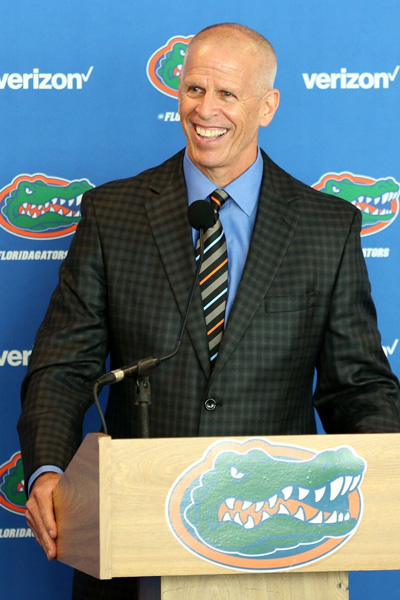Master’s in Kinesiology vs. Sport Management
Comments Off on Master’s in Kinesiology vs. Sport Management
From negotiating deals on behalf of top athletes to overseeing operations at a stadium, there are many ways to build a career behind the scenes of athletic teams and events. If you’re interested in sports and health leadership, you might be weighing your options for pursuing a graduate degree. A program in kinesiology is one way forward, but it’s important to choose the educational path that best fits your goals.
When you consider the differences in completing a master’s in kinesiology vs. sport management, you’ll see how a curriculum that provides a comprehensive background in sports business and administration can give you an edge in reaching your professional objectives. Students who earn an master’s in sport management develop the skills necessary to drive strategy in sports-oriented organizations and help athletes achieve success both on and off the field.
What Graduate Studies in Kinesiology Have to Offer
The field of kinesiology scientifically examines the movement of bodies in ways that can apply to a wide range of career paths. Graduates with kinesiology degrees commonly go on to work in fields like:
- Physical education
- Athletic training
- Choreography
- Health and fitness consulting
- Corporate fitness and wellness instruction
- Physical therapy
Those interested in a master’s degree may have previously taken undergraduate courses exploring the science behind what makes an exercise program effective, best practices for preventing injuries, and techniques for promoting fitness. By completing a graduate program, professionals gain a deeper understanding of the theory behind their work and deepen their engagement with various approaches to health and fitness.
Master’s programs might offer concentrations in areas of study such as human performance, biobehavioral science, and exercise physiology. Some of these specializations are intended for students who plan to pursue a doctorate or a career in research. That means the curriculum may involve a requirement to perform original research and write and defend a thesis.
At the University of Florida, innovative research taking place in Center for Exercise Science shapes the curriculum for graduate students studying kinesiology. The scientists working in this multidisciplinary research center perform groundbreaking studies into the connections between physical activity, the functions of muscles and organs, and illness. Kinesiology graduate students have the chance to develop cutting-edge knowledge from working with renowned experts in areas such as cardiovascular physiology and rehabilitation neuroscience.
The Advantages of a Sport Management Master’s Degree
Advanced studies in kinesiology may concentrate on the scientific and medical aspects of athletic events, but a graduate program in sport management explores issues related to business, leadership and marketing as well as athlete performance. While working toward an M.S. in Sport Management, professionals develop the skills, knowledge and experience necessary to perform administrative functions for teams, organize events, and guide athletes through a variety of challenges on and off the field.
In a sport management curriculum, students become more informed financial and organizational decision makers with a thorough understanding of the legal concepts related to sports and player contracts. They analyze data to evaluate health and human performance and perform research to solve the types of problems that occur in sports organizations. Students have chances to explore how sports relate to broader social issues, investigate how psychological principles apply to athletics, and refine their personal leadership philosophies.
Graduates who complete their advanced education in sport business may go on to succeed in an array of crucial roles, including:
- Sport facility manager
- Athletic development professional
- Sport marketing consultant
- Sport law
- Coaching
Start Changing the Game With UF’s Online M.S. in Sport Management
The online Master of Science in Sport Management from University of Florida equips students to take on complex financial and administrative challenges in the world of sport. The comprehensive sport management curriculum can help you develop your skills as a multi-talented professional who is ready to break into this field.
UF is a sports powerhouse whose top-tier faculty have firsthand insight into every facet of the industry. UF’s large alumni population and student support services also offer highly valuable networking and professional development opportunities. With options like the Gator-to-Gator alumni social network and specialized career coaching with internationally recognized industry professionals, a UF graduate will start their sport career on the right foot.
Through core courses that include Sport Marketing and Management and Leadership in Sport and electives such as Sport Sponsorship and Athlete Development, you will gain in-depth knowledge of the business of sport. You will also have the opportunity to pursue a graduate certificate in Sport Event Management or in a specialization in the area of Athlete Development, High Performance Coaching, Sport Law, or Director of Racquet Sports.
Learn more by downloading a brochure, or start your application today.




 Michael Jordan, Patrick Mahomes, and Serena Williams all have something in common and it’s not just their athletic prowess. It’s the fact that throughout their careers, each of them has worked side by side with experts in sport law. From sports agents to athletic directors, there are many paths to get to the major leagues of sport management, but each of them also requires a substantial knowledge of sport law. But what is it?
Michael Jordan, Patrick Mahomes, and Serena Williams all have something in common and it’s not just their athletic prowess. It’s the fact that throughout their careers, each of them has worked side by side with experts in sport law. From sports agents to athletic directors, there are many paths to get to the major leagues of sport management, but each of them also requires a substantial knowledge of sport law. But what is it? 
 Behind every perfectly executed play, behind every victory and behind every post-victory celebration is a story about transforming potential. The players and teams that win games spend countless hours in practice, elevating their performance to the absolute best it can be. The organizations that promote and support them must also transform themselves, by hiring and supporting strong decision makers and leaders.
Behind every perfectly executed play, behind every victory and behind every post-victory celebration is a story about transforming potential. The players and teams that win games spend countless hours in practice, elevating their performance to the absolute best it can be. The organizations that promote and support them must also transform themselves, by hiring and supporting strong decision makers and leaders.